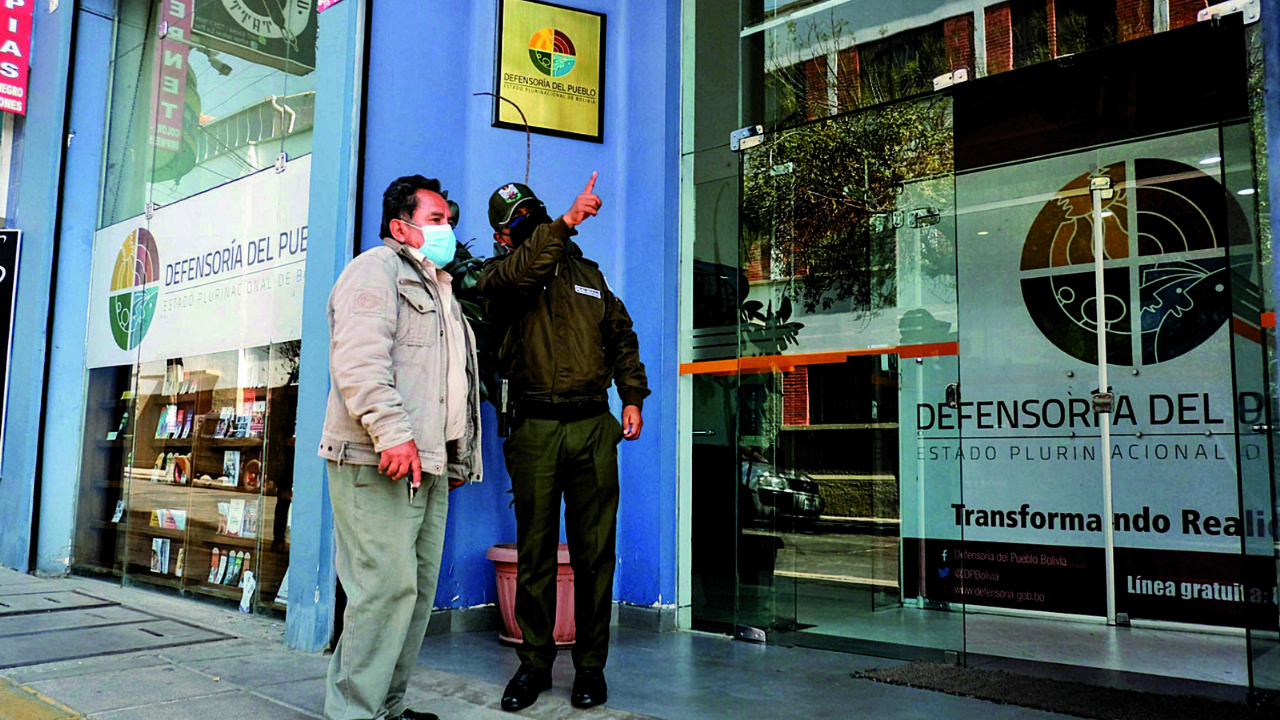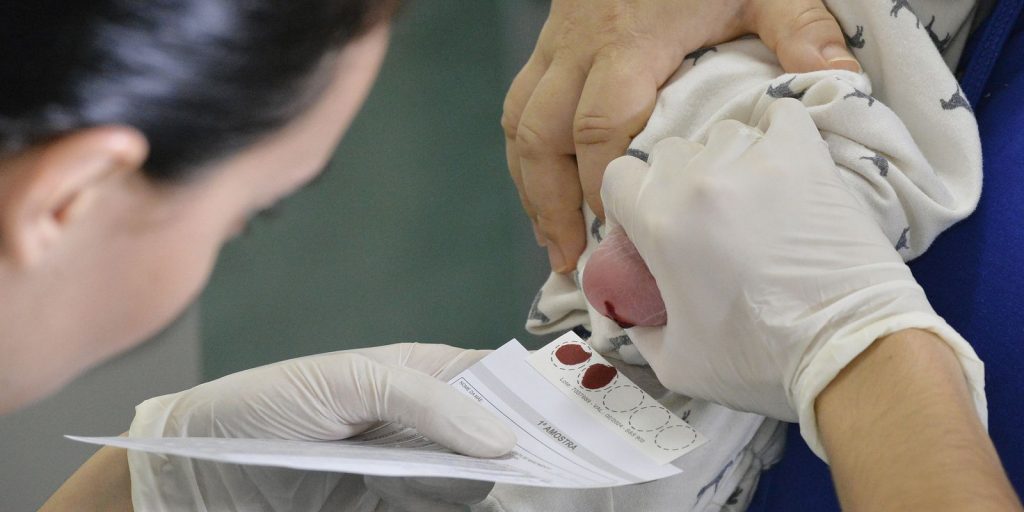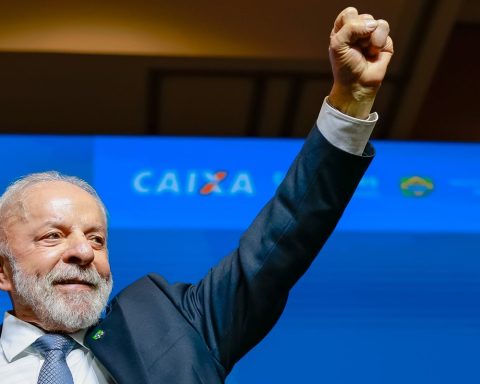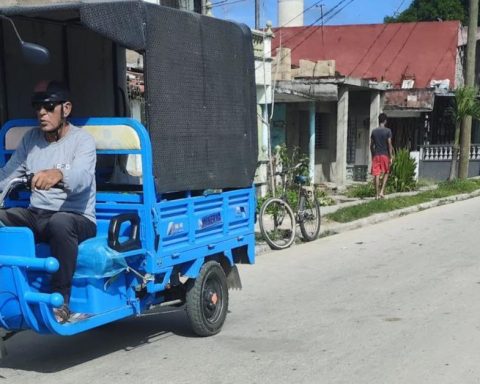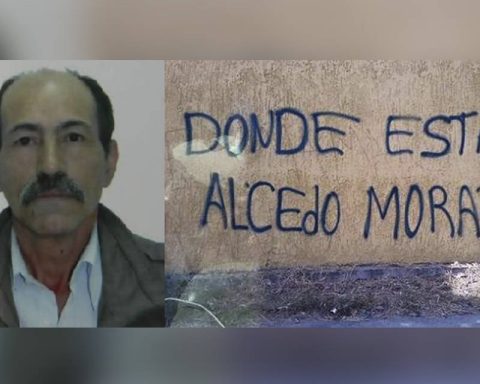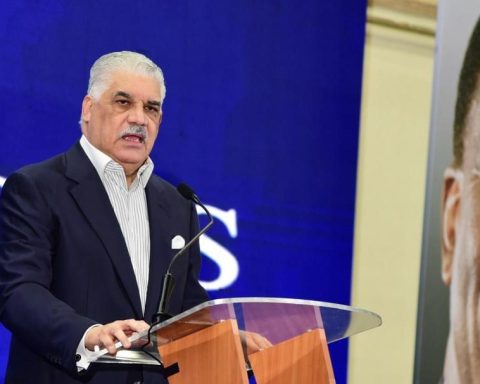Juan Carlos Véliz M./ Page Seven Plus
“The people are in the Government; therefore (the Ombudsman) is going to defend the people in the streets but also the people who are in the Palace”, decreed then President Evo Morales on May 13, 2010, when he installed Rolando Villena as Ombudsman.
The former vice president Álvaro García Linera reinforced in the same act: “The Ombudsman is going to defend the people and the State against conspiracies and against those who want to end democracy.”
Three years later, the Ombudsman elected by the MAS with a large majority in the Legislative Assembly was repudiated by the rulers and their collaborators as “the best instrument of the right”, “neoliberal”, “camouflaged politician” and other qualifiers because Villena denounced the government excesses against democratic freedoms.
On May 4, 2016, when David Tezanos Pinto was sworn in as the new Ombudsman, Morales insisted that “in these times, the most attacked, I don’t know if it is from the President, from the Vice President, it is the State itself because It is at the service of the people.”
A year later, Tezanos Pinto guided the ship of the institution – in charge of ensuring the validity, promotion and fulfillment of individual and collective human rights recognized by the Constitution, laws and international instruments – towards calm waters but controlled by a power “all-encompassing”, as Villena said.
The institution founded by Ana María Romero de Campero succumbed although it continued to function, but with a high economic cost borne by the General Treasury of the Nation and international cooperation.
In the house of the Defender
The first reports of the institution show that it began to function without a budget assigned by the State and in the home of the first Ombudsman, Ana María Romero de Campero.
“On April 1, 1998, without having a place or an approved budget, the Defender began to work in her private home. After three weeks, he moved to a rented office in the Illampu building and, finally, he moved to Calle Heriberto Gutiérrez, 2374, in a three-story building that was rented until the institution was provided with its own premises. ”, says one of the memoirs.
Since its inception and in order to adjust to the institutional profile, the Ombudsman has worked independently from the powers of the State with the spontaneous support of people and institutions, which meant valuable help in organizing the new institution.
Upon initiating its first administrative steps, the Ombudsman encountered several obstacles. One of them was the negotiation with those responsible for the General Treasury of the Nation due to the lack of allocation of funds to the institution in the 1998 Budget and the impossibility of reformulating the budget already approved by Congress.

The Ombudsman, as it was called then, began to carry out its activities on April 1, 1998 and only on June 13 of that year, after meeting the requirements established by the Ministry of Finance, was its first budget of 6,879 approved. 098 bolivianos. That year, the institution achieved an execution rate of 98%.
Twelve years later, in 2010, the Ombudsman’s budget was recorded at 29.3 million bolivianos with a consolidated institutional structure and more staff. Revenue increased by more than 400%.
For this report, the budget for the last 10 years of the Ombudsman’s Office was taken as a sample.
From 2012 to the first months of this year, the Ombudsman’s Office has executed 356,444,214 Bolivians, according to data extracted from the General State Budget and Sigep-Sigma. This figure does not include the support of international cooperation; for example Unicef, UNDP and Sweden contributed more than 1.2 million Bolivians in 2019.
This figure increased in some years but in others there were reductions, such as in 2012 when 18.3 million bolivianos were programmed but there were remnants that had not been executed in previous administrations.
For this year, 37.9 million Bolivians have been provided for the operation of the Ombudsman’s Office, of which 22 million will be used for “personal services”; 13.4 million for “non-personal services” or payment of basic services and the remaining budget is divided between maintenance and repair of vehicles, furniture, professional services, advertising, legal expenses, tickets, travel expenses, insurance and others.
The defenders of the “people who are in the Palace”
After he was elected in March 2016 with the confidence of 103 parliamentarians, more than two thirds of the Legislative Assembly, Tezanos Pinto launched his plan with a clear delimitation. The Ombudsman’s Office should influence the generation of public policies and regulations for populations and groups in a situation of vulnerability, in particular women, girls, boys and adolescents.
He defined that the areas of greatest emphasis would be racism and discrimination, access to justice, torture, the Plurinational Observatory of Human Rights, economic, social, and cultural rights, water, and Mother Earth.
He also outlined the “peaceful management” and conflict prevention, and made it clear that the “Ombudsman’s Office does not generate antagonism with the State but rather coordinates with the central government and the autonomous territorial entities for the fulfillment of its functions.”
So it was.
Since taking office, he has aligned his mandate with the government in office and has supported some measures that violate rights, such as the construction of the road through the Isiboro Sécure Indigenous Territory and National Park (Tipnis) without prior consultation with the original peasant indigenous peoples, as established by the Political Constitution of the State in Bolivia.
In 2016, during the mobilization of people with disabilities who marched from Santa Cruz to La Paz demanding a bonus of 500 bolivianos from the government of Evo Morales, he aligned his speech and actions with those of the Executive Branch. He said that the request would affect the state budget, blamed the police for the violent repression in Plaza Murillo and avoided including government authorities.
He was later filmed delivering “humanitarian aid,” which consisted of money, to marchers who had decided to return to their respective regions after the movement was fractured.
A review of their actions reveals the same pattern in conflicts such as that of Adepcoca and the arrest of the leader Franclin Gutiérrez, or the mobilization of Achacachi.
Their defense reports give an account of concrete actions in relation to the rights of children and adolescents, indigenous and LGBTI groups. She also emphasized the situation of those detained in prisons; however, he avoided pronouncements on abuses of political power.
Tezanos Pinto’s term unexpectedly reached its epilogue in January 2019 in the midst of a scandal after airing his marital problems in the Ombudsman’s Office and comparing himself to then-President Morales, who would also have used state assets in his relationship with Gabriela Zapata.
The Ombudsman’s Office, according to the Political Constitution and the Law of the Ombudsman, has functional, financial and administrative autonomy as a basis to avoid partisan or other political interference and does not receive instructions from State bodies.
Its scope of intervention includes individual and collective human rights.
The role of the Ombudsman covers the administrative activity of the entire public sector and the activity of private institutions that provide public services.

Photo: Archive/ Page Seven
On January 30, 2019, the Plurinational Legislative Assembly elected Nadia Cruz as the new interim Ombudsman with 96 votes with the forecast that while the authority lasts, the new or new Ombudsman will be appointed, but that it didn’t happen The lawyer remained in office for more than three years.
Like Tezanos, Cruz also failed to return to the Ombudsman the independence established by current regulations; He concentrated his efforts on the rights of vulnerable sectors and he had to face the political crisis of 2019 and the covid pandemic.
In its management reports and defense reports, issues such as the trafficking of girls, boys and adolescents, health, older adults, people with disabilities, mining and others are addressed. He also influenced the violations of human rights during the government of Jeanine Añez (massacres in Senkata and Sacaba, and the deaths that occurred in Pedregal).
In this particular, it delivered at least three defense reports on human rights violations with verifications and testimonies, and made representations in international arenas such as the Inter-American Commission on Human Rights (IACHR), which later formed the Interdisciplinary Group of Independent Experts (GIEI- Bolivia) to investigate the violence that occurred between September and December 2019.
However, it did not investigate or make contact with the victims of the government of Evo Morales – who resigned on November 10, 2019 – from Montero, Vila Vila, Challapata, Potosí or citizens who suffered attacks by groups of civilians related to the Government that perpetrated the protection of the forces of order.
There are no recommendations or conclusions that indicate the responsibilities of government authorities in the deployment of indigenous people, peasants, miners and public officials in La Paz against citizens mobilized after the failed elections of October 2019.
The death of Julio Llanos, a survivor of the dictatorship and a human rights activist, remains unpunished, although the defense report confirms that he was the victim of attacks by civil groups.
In her defense report, Nadia Cruz denounces that after the 2019 elections, “the authorities and public servants of the Ombudsman’s Office were the object of different acts that limited or sought to limit their work.”
Since the government of Jeanine Añez, the assembly members were unaware of the Ombudsman’s mandate because her interim term would have expired, but the authority received the support of the IACHR, which granted it precautionary measures in the face of attacks from power together with delegate Nelson Cox, who was later a candidate from the MAS to the Mayor’s Office of Cochabamba.
Cruz’s defense reports also place a strong emphasis on the attention to the pandemic during the first wave of the Jeanine Añez government and concludes that the State did not comply with the protection of the population’s health.
It is necessary to investigate and see if the Ombudsman should be prosecuted for breach of duties
Julieta Montaño, lawyer
38MM
OF BOLIVIANS
is the scheduled budget
for the Ombudsman
for management 2022.
Today the Ombudsman does not play any relevant role in the public life of our country
Rafael Puente, analyst
